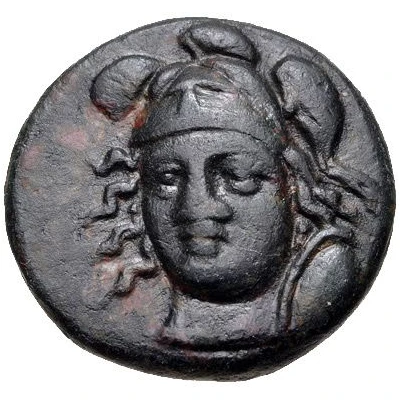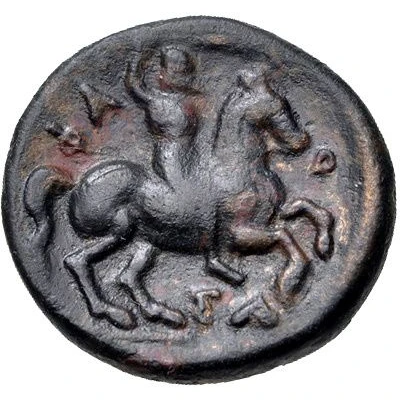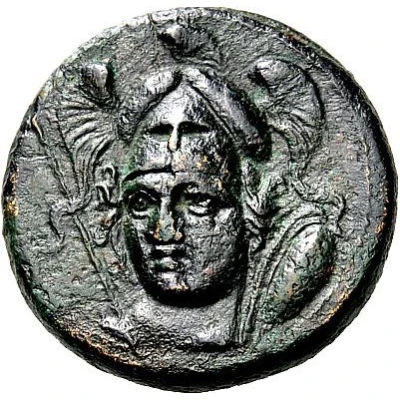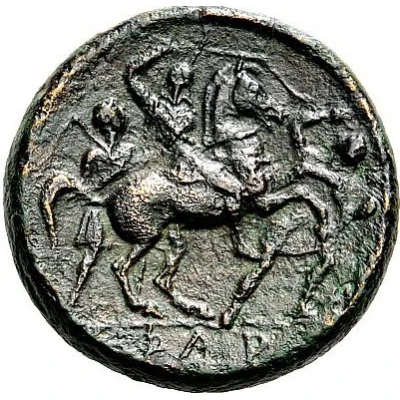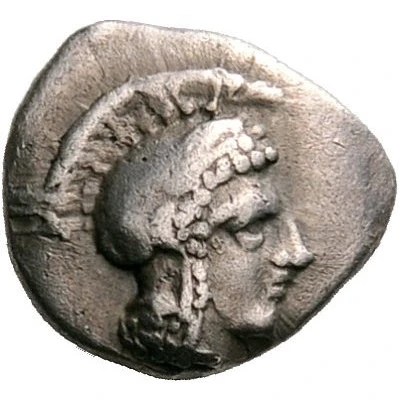
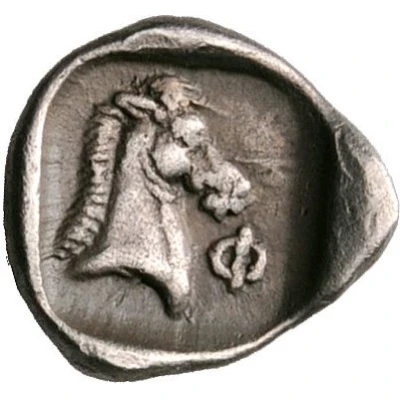

© Nomos AG
Hemiobol 450 BC - 400 BC
| Silver | 0.51 g | - |
| Issuer | Pharsalos (Thessaly) |
|---|---|
| Type | Standard circulation coin |
| Years | 450 BC - 400 BC |
| Value | Hemiobol (1⁄12) |
| Currency | Drachm |
| Composition | Silver |
| Weight | 0.51 g |
| Shape | Round (irregular) |
| Technique | Hammered, Incuse |
| Demonetized | Yes |
| Updated | 2024-10-10 |
| Numista | N#171208 |
|---|---|
| Rarity index | 100% |
Reverse
Horse’s head to right and all within incuse square.
Script: Greek
Lettering: Φ
Interesting fact
The Hemiobol coin was used as a form of currency in ancient Greece, specifically in the city-state of Pharsalos (Thessaly) during the 5th century BC. The coin's design features the head of a youthful male on one side and a horse on the other, symbolizing the importance of horse breeding and trade in the region. Despite its small size, the Hemiobol coin played a significant role in the ancient Greek economy and was widely used for everyday transactions.
